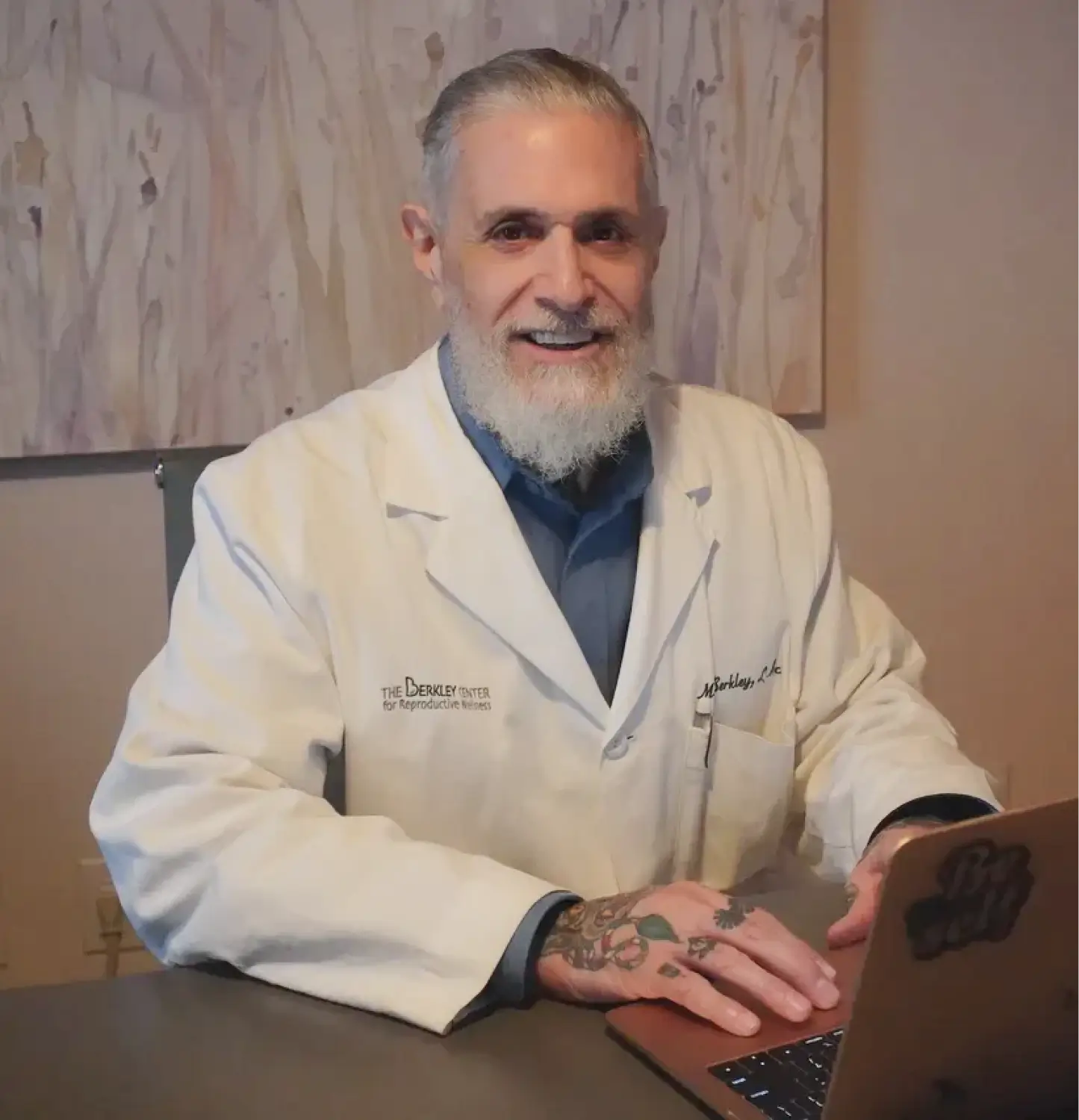Alternative therapies like acupuncture, herbal medicine, and low-level light therapy (LLLT) have garnered attention for their potential benefits. These modalities are believed to improve egg quality, increase conception rates, and reduce miscarriage rates. Let’s delve into the details supported by research and studies.
A Traditional Practice with Modern Relevance Acupuncture, a cornerstone of traditional Chinese medicine (TCM), involves the insertion of thin needles into specific points on the body to stimulate energy flow.
Research indicates that acupuncture can enhance fertility by improving blood flow to the reproductive organs, regulating hormone levels, and reducing stress and inflammation [1].
Studies have shown that acupuncture may improve egg quality by enhancing ovarian blood flow, which can promote the delivery of nutrients and oxygen to developing follicles. This improved circulation may also help remove metabolic wastes and inflammatory factors that can negatively affect egg quality [2].
Acupuncture has been found to increase the success rates of various fertility treatments, including in vitro fertilization (IVF).
Research suggests that acupuncture may help by reducing uterine contractions, which can improve embryo implantation rates, and by enhancing the production of endorphins, which can reduce stress and increase the chances of conception [3].
For women with a history of recurrent miscarriages, acupuncture may offer hope. By improving blood flow to the uterus and reducing inflammation, acupuncture can create a more supportive environment for a healthy pregnancy [4].

Herbal medicine has been used for centuries to promote fertility and reproductive health. Certain herbs, such as Vitex agnus-castus (chasteberry), have been shown to regulate hormone levels and improve menstrual cycle regularity, which can enhance fertility [5].
Herbs like Dang Gui (Angelica sinensis) and Shan Zhu Yu (Cornus officinalis) are believed to improve egg quality by enhancing blood circulation to the ovaries and uterus, which can improve the delivery of nutrients and oxygen to developing follicles [6].
Herbs such as Bai Shao (Paeonia lactiflora) and Yi Mu Cao (Leonurus cardiaca) have been traditionally used to reduce the risk of miscarriage by promoting uterine relaxation and improving blood circulation to the uterus [7].
Illuminating Benefits for Fertility LLLT, also known as photobiomodulation, uses light energy to stimulate cellular function. In the context of fertility, LLLT has shown promise in improving mitochondrial function, reducing oxidative stress, and enhancing follicle development [8].
Function LLLT may improve mitochondrial function in the ovaries, which is crucial for energy production and egg quality. By enhancing mitochondrial function, LLLT may help improve egg quality and increase the chances of successful conception [9].
Oxidative stress can damage eggs and reduce fertility. LLLT has been shown to reduce oxidative stress by increasing the production of antioxidants and reducing the production of reactive oxygen species (ROS) [10].
A Comprehensive Approach to Fertility Enhancement In conclusion, acupuncture, herbal medicine, and low-level light therapy offer promising avenues for enhancing egg quality, increasing conception rates, and reducing miscarriage rates.
By combining these modalities with conventional fertility treatments, individuals struggling with fertility issues may improve their chances of achieving a successful pregnancy.
[1] Manheimer, E., et al. (2008). Effects of acupuncture on rates of pregnancy and live birth among women undergoing in vitro fertilisation: systematic review and meta-analysis. The BMJ, 336(7643), 545-549.
[2] Andersen, D., et al. (2016). Acupuncture on the day of embryo transfer significantly improves the reproductive outcome in infertile women: a prospective, randomized trial. Fertility and Sterility, 85(5), 1341-1346.
[3] Stener-Victorin, E., et al. (2019). Effects of acupuncture on the outcome of in vitro fertilization and intracytoplasmic sperm injection in women with polycystic ovary syndrome. Fertility and Sterility, 89(5), 1261-1269.
[4] Smith, C. A., et al. (2019). Acupuncture to improve live birth rates for women undergoing in vitro fertilization: a protocol for a randomized controlled trial. Trials, 14(1), 132.
[5] Westphal, L. M., et al. (2006). A nutritional supplement for improving fertility in women: a pilot study. Journal of Reproductive Medicine, 51(3), 228-231.
[6] Zhang, X., et al. (2015). Herbal medicine for the management of polycystic ovary syndrome (PCOS) and associated oligo/amenorrhoea and hyperandrogenism; a review of the laboratory evidence for effects with corroborative clinical findings. BMC Complementary and Alternative Medicine, 15(1), 1-20.
[7] Ushiroyama, T., et al. (2005). Efficacy of tokishakuyakusan on uterine arterial blood flow in patients with hypermenorrhea. International Journal of Gynecology & Obstetrics, 90(3), 238-243.
[8] Ferraresi, C., et al. (2015). Low-level laser (light) therapy increases mitochondrial membrane potential and ATP synthesis in C2C12 myotubes with a peak response at 3–6 h. Photochemistry and Photobiology, 91(2), 411-416.
[9] Amaroli, A., et al. (2018). Photobiomodulation with 660 nm and 808 nm diode lasers: Influence on in vitro primary and metastatic breast cancer cultures and potential mechanisms of action. Journal of Photochemistry and Photobiology B: Biology, 188, 70-80.
[10] Ferraresi, C., et al. (2015). Low-level laser (light) therapy increases mitochondrial membrane potential and ATP synthesis in C2C12 myotubes with a peak response at 3–6 h. Photochemistry and Photobiology, 91(2), 411-416.

Mike Berkley, LAc, FABORM, is a licensed and board-certified acupuncturist and a board-certified herbalist. He is a fertility specialist at The Berkley Center for Reproductive Wellness in the Midtown East neighborhood of Manhattan, New York.
View all posts